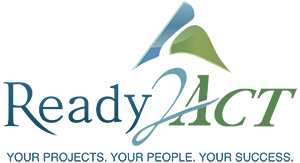Now is the time to shine as a leader AND now is the time where you have the opportunities to do so. We’ve been dealing with some tough times and organizations need people to step up like never before. Watching races like the Kentucky Derby, I find it fascinating to watch the course strategy. The winner in a number of races throughout the years usually makes his move in the final quarter. You can watch
Applying For the PMP ® Exam (or other certifications) Often times, people come to me asking me how to apply for certifications through PMI (Project Management Institute) such as the PMP® Certification, CAPM® Certification, etc. While no “one way” is the best way, here is what we have determined to be the most effective; 1.) Go to www.pmi.org Click on the “Certification” tab on the top, and select “Overview” – this shows all of the
Project Management Constraints There’s a concept that I love because it applies to both professional and personal lives: the “Triple Constraint”. In Project Management, when we measure project success, most people typically look at Time, Cost, and Scope. The “Triple Constraint” means that when (not if) one of those project constraints changes, it impacts at least one other constraint. For example, if my client suddenly needs a project done sooner than originally planned, then I may
Success In Project Management Previously, I discussed the challenges associated with “Scope Creep” and how to address them. As a review, there are two types of scope: 1) Project Scope and 2) Product Scope. This month, let’s focus on product scope, what it is, and how to control it better. Product scope as defined by the Project Management Institute as “the functions and features that characterize a product, scope, or result”. Most people don’t know
Project Managers – Avoid Scope Creep What is “Scope Creep”? Simply said, it’s when you plan to do something and suddenly you find yourself with more to do than you originally thought. Controlling your scope is particularly important when you work on personal or professional projects. The inability to properly “scope out” projects can lead to cost overruns, missed deadlines, and unhappy stakeholders. First, let’s define “scope”. There are two different types of scope: Project
Project Manager or Business Analyst? To survive in today’s economy, companies must maximize their time and money while they work with limited resources. Organizations that haven’t invested in their human resources are struggling because they used on-the-job learning as a cheap alternative to formal training. Like most things, “you get what you pay for.” We value education because, in most roles, knowledge is essential to increase efficiency and effectiveness. People learn by doing, but experience
With the advent of email and the increasing reliance on this technology, human beings are communicating in person and via phone less often. This disturbing trend not only impacts our interpersonal relationships, but also our business productivity. Although email is a useful tool, problems arise when email is used inappropriately. Just as there is etiquette for face-to-face social situations, there is “netiquette” for communicating virtually using technology. Here are some Netiquette tips: Don’t say anything
Many of us have learned what does and doesn’t work about interpersonal relationships through trial and error. Sometimes, these lessons learned make great stories of our shortcomings in dealing with others. And the funny thing is, we’re still learning. It’s a never ending process not a destination. Thankfully, training increases our awareness, exposes us to new techniques, and gives us some tools to be more effective in real-life situations. One of the most helpful things
In these tough economic times and constant onslaught of “bad news” perpetuated in the media, it’s easy to understand how some people can feel powerless. While there may be little that you can control on global or national scale, you certainly do have control over your own personal power and how you use it to the best of your ability. Lets’ examine three primary sources of personal power and how to use it for good:
If you’re in business, you’re constantly learning. Some need to stay up-to-date with advances in technology, techniques, certifications, regulatory & legal environments, or research just to stay viable and competitive. Others just feel more engaged, creative, and innovative in their daily work when they are learning–no matter what the content is. That’s why knowing how you learn is critical to your success. The Accelerated Learning Handbook by David Meier, discusses how recent brain research has
